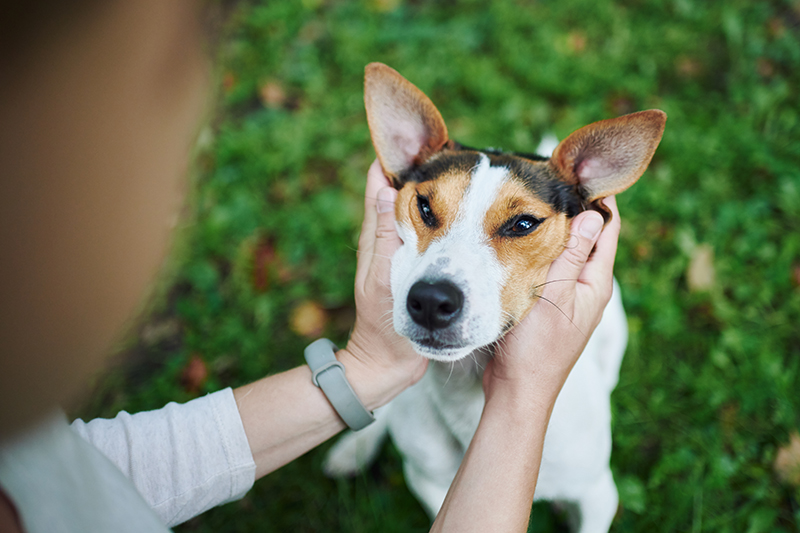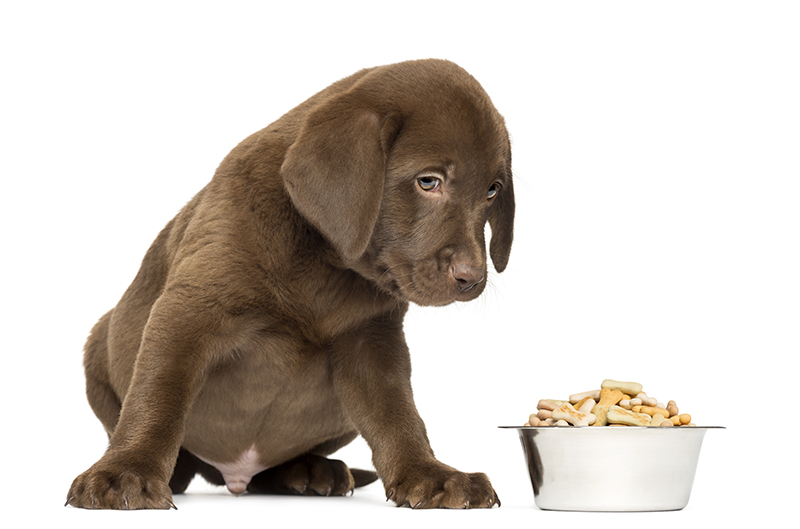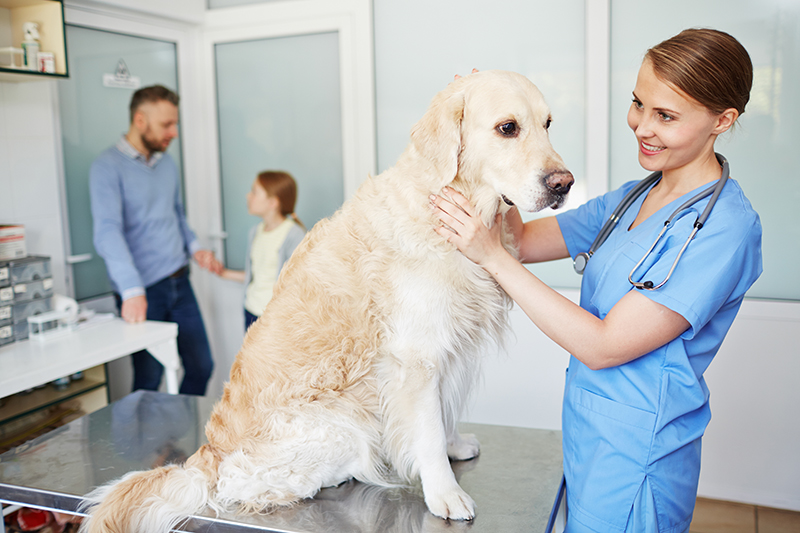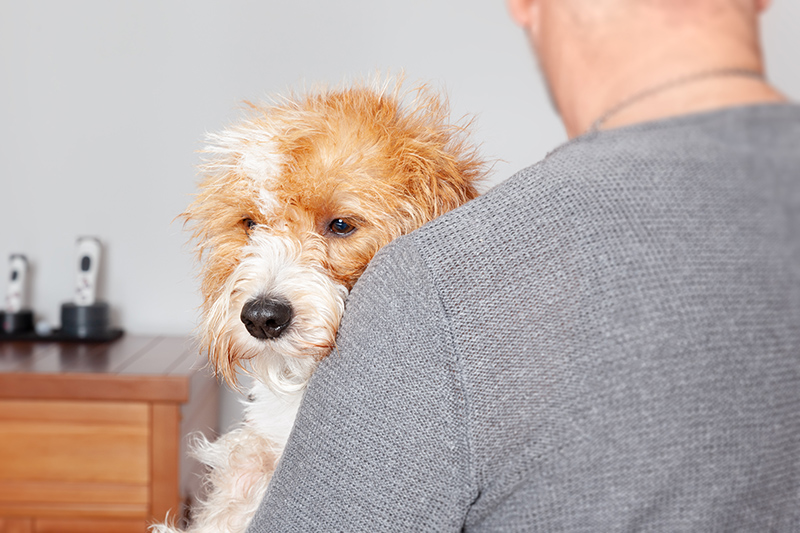As a pet owner, it’s our job to make sure we notice if something is wrong with our dog. Since a dog can’t let us know in words that they’re ill, you need to know how to tell if your dog is sick. Dogs can be particularly good at hiding their illness, since showing signs of distress could signal that they’re easy prey to a predator.
If you suspect that your dog is sick, it’s always worth a trip to the vet, just to be sure. If it ends up being nothing, you can relax. However, sometimes your dog is really doing poorly when they show a few minor signs and a vet can help them recover.
Take the time to check your dog over on a regular basis, too. Often, health issues are noticed during grooming sessions or even just a good belly rub.

Signs Your Dog is Sick
You know your pet best, so if you are wondering how to tell if your dog is sick, watch for any sign that they’re not feeling normal. Any changes in behavior could indicate sickness. Here are a few signs that your dog may not be feeling great.
They seem different.
You’ll notice when your dog is off, because they act differently than usual. If your dog normally runs to greet you and jumps around, but is suddenly more sedate, something may be going on. In most cases, this is a gut feeling. You’ll just “know” that something is wrong.
Their bathroom habits are changing.
Any drastic changes to your dog’s bathroom habits could be a sign of something going on with their health. Watch for diarrhea, especially if it has blood or worms in it, constipation, and excessive or very little urination. Any extreme isn’t good, particularly if it goes on for more than a day.
They are touchy.
Is your dog suddenly snapping or growling over things that never bothered them before? This could be a sign that they are in pain or don’t feel great. It’s easy to mistake this for poor behavior, but think about when you feel ill . . . you don’t want people grabbing and hugging you, either. Notice when the reaction occurs, since this can indicate what part of the body is affected. For example, if you rub your dog’s face on one side and they snap at you, it could be an ear infection or something hurting on that side.
They aren’t eating much or are eating a lot.
While eating a lot more than usual isn’t usually worrisome, it can be an issue if you notice your dog also has constipation or diarrhea. The more common sign of illness is a lack of interest in food. When your normally hungry pup stops eating and refuses treats, that’s a pretty good indication that they need to see the vet.

They are coughing or having issues breathing.
Excessive panting, coughing or ongoing sneezing, and difficulty breathing can all be serious signs that your dog is in trouble. If you notice that your dog is wheezing or is working hard to breathe, you should make sure to see a vet as soon as possible. This type of issue can quickly progress to something more serious.
They have bad breath.
Dental issues in dogs can present as bad breath and irritations in the mouth. You may notice that in addition to smelling pretty foul, your dog isn’t eating harder food, has stopped chewing on chew toys or is scratching/pawing at their mouth. It’s worth a trip to a professional to find out if there is something going on with your dog’s teeth.
They have a fever.
If you’re petting and touching your dog several times a day, you will definitely notice if they are hotter than normal. This is often accompanied with a dry nose, one of the classic signs of illness in dogs.
Preventing Sickness in Dogs
Ideally, you’ll be able to prevent your dog from getting ill in the first place.
Regular Trips to the Vet
Regular trips to the vet are always a good idea, just to do a checkup. Your veterinarian is trained to notice signs and symptoms that you might miss. If a disease or potential health issue is caught early, it can be treated before it really affects your dog’s health. However, there are a number of ways you can keep your dog in good health overall.

Daily Exercise
Daily exercise is essential. A dog that plays and runs will be healthier than one that lays around all day. You should take your dog for walks and playtime every day. This will also help your canine pal stay at a good, healthy weight. It’s good for you, as the owner, too. Remember that a happy, engaged dog will also be healthier in general.
Well-Balanced Diet
Ensure that you are feeding your dog a well-balanced diet. The right food can have a major impact on pet health. Your vet can recommend the right food for your dog’s particular nutritional needs. Keep in mind that as your dog grows, their changes will change over time. You need to adjust for this as your dog ages.
Vaccinations & Preventative Medicines
You should ensure that your dog is given parasite medications on a regular basis to prevent infections. Even relatively minor parasites, such as fleas, can cause some serious health problems. It’s also best to keep your dog vaccinated on schedule to prevent dangerous diseases.

You know your dog best. Trust your instincts on how to tell if your dog is sick and make sure you seek help if you suspect something is wrong.

Love the website– very user friendly and lots to see!
We’re glad you like the site 🙂